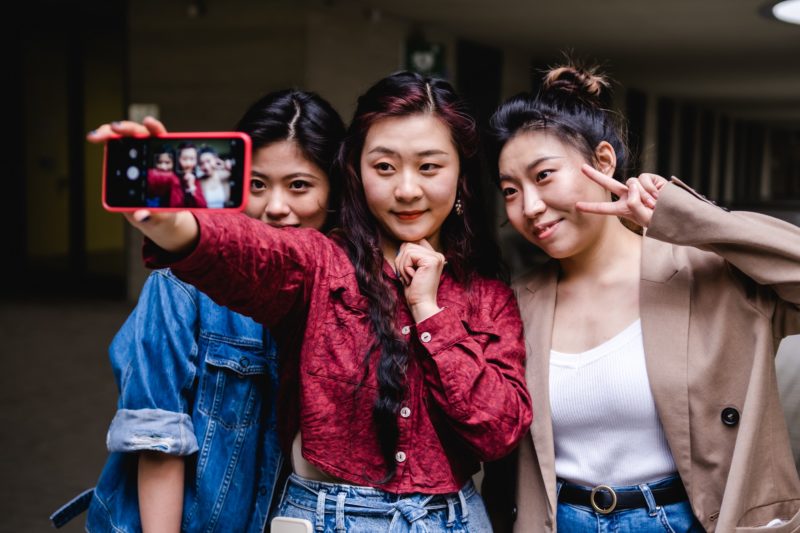When you think of a vending machine, what can you typically get? A bottle of Coke, a packet of crisps…but how about a bunch of fresh flowers? This new offering emerged last year and has been made available across China with self-service flower machines installed in underground stations in major cities including Shanghai, Shenzhen, Guangzhou, and Chongqing.
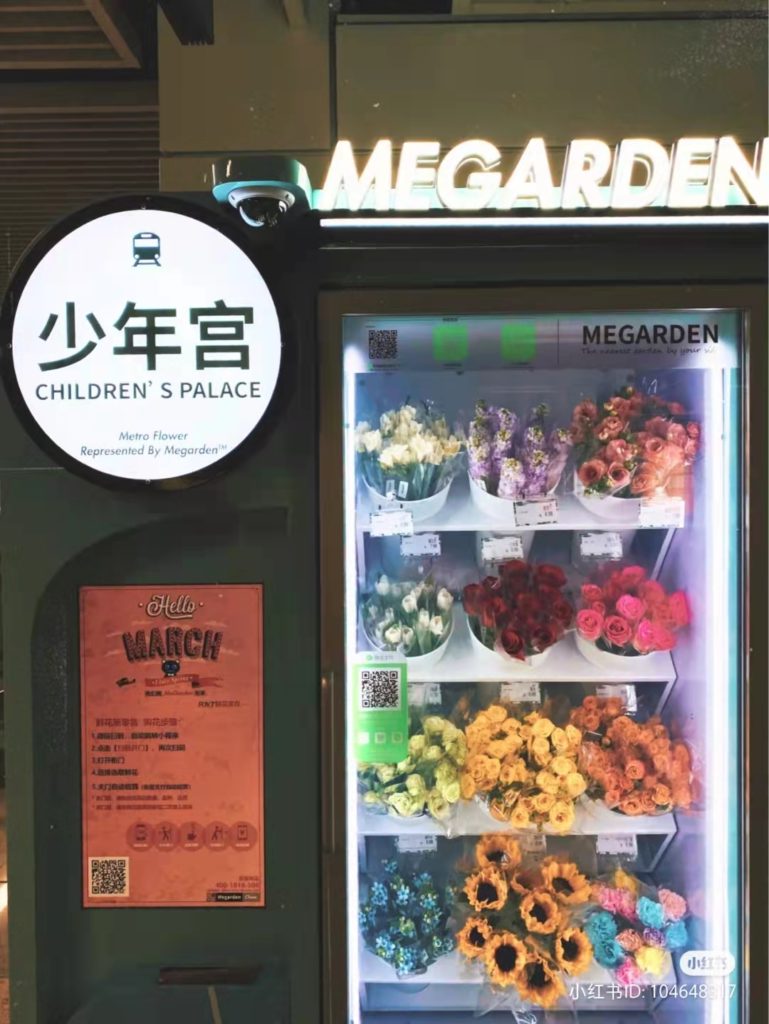
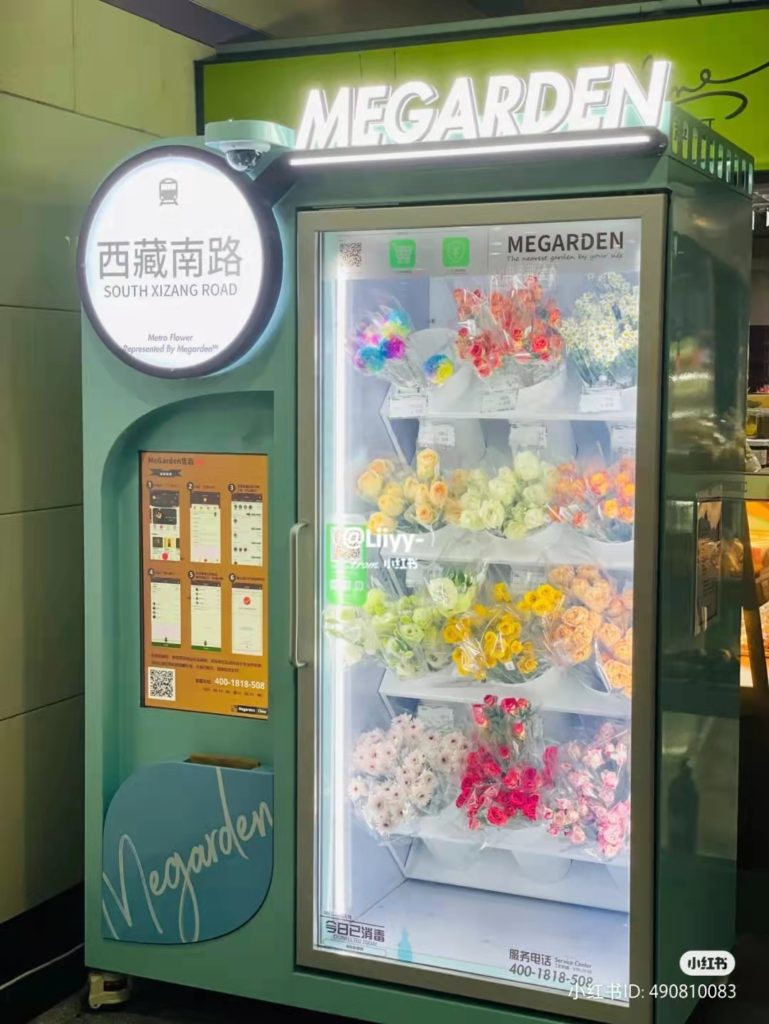
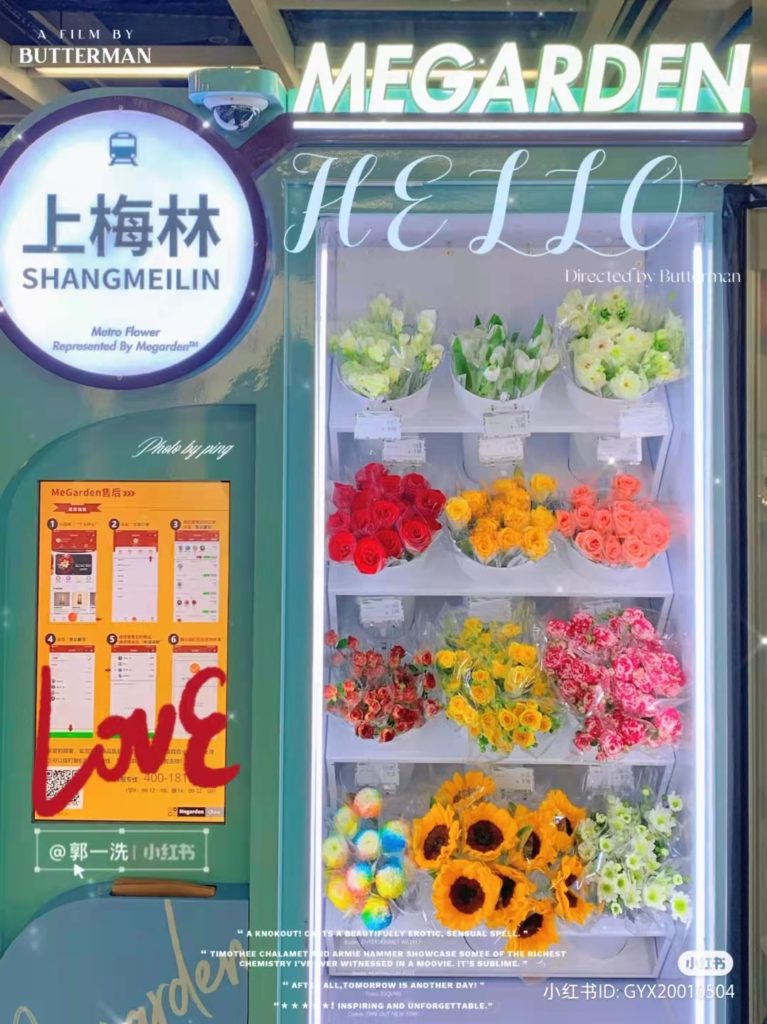

These flowery blooms have soon created a local buzz, especially among young Chinese, thanks to its convenient access and a wide range of varieties, such as tulips, roses, and violets, with a friendly, average price of 10 RMB ($1.57). The colourful installation has also turned into a space for photo opportunities as many young buyers are excited to share this unusual experience, pushing the offline enthusiasm into an online sensation.
The hashtag #SubwayFlowerVendingMachine has so far garnered over 588 million views on China’s most popular lifestyle platform Xiaohongshu, where information such as the location of vending machines, types of flowers on offer and price ranges are included in thousands of notes posted by users.
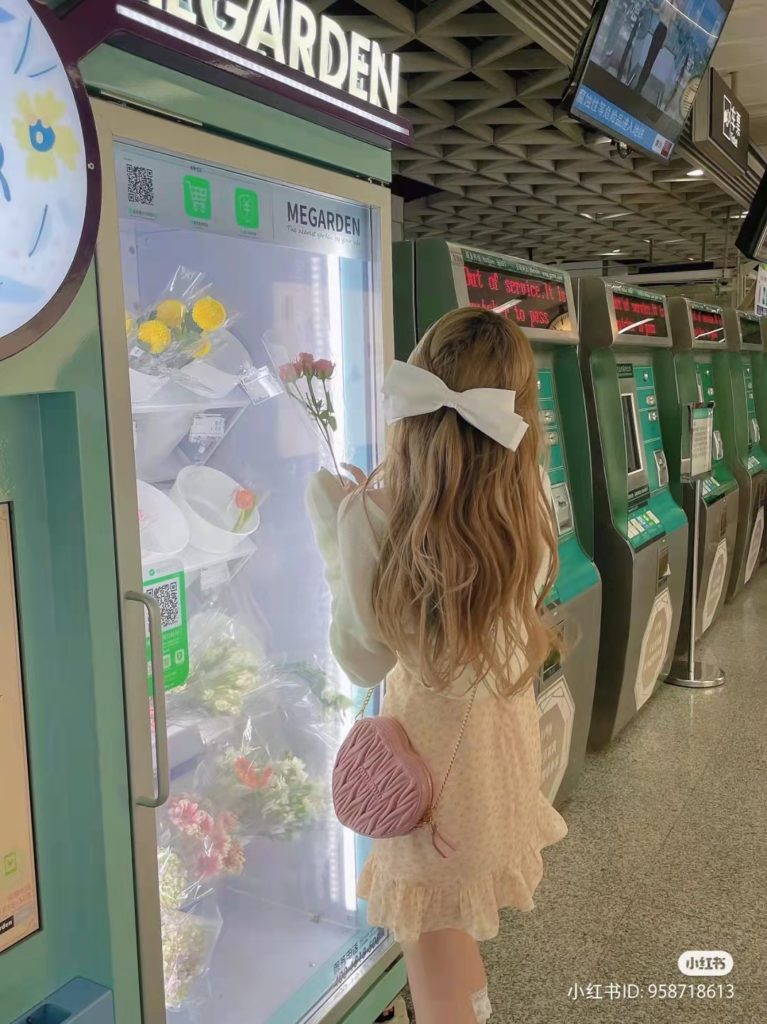

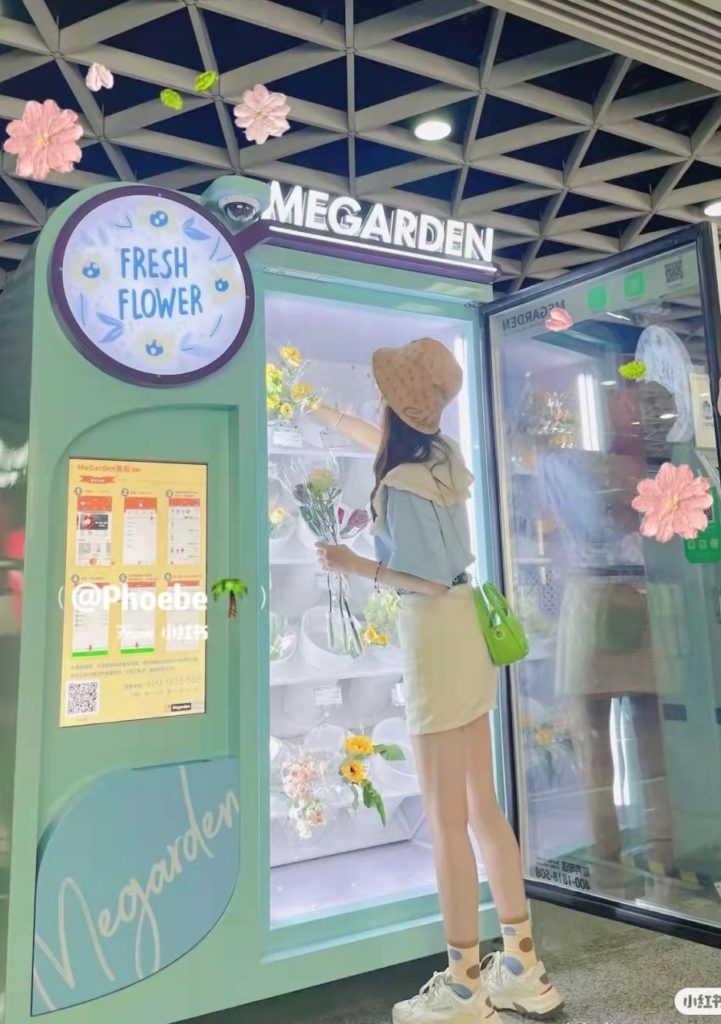
Based on these posts, the main providers of these installations are MeGardon, an expert in smart retail systems and planting equipment, and Flo Garden, an e-commerce platform with a focus on flowers. Users can use their WeChat mini-programs to check flower stations around them, providing an additional convenience for consumers while strengthening the online-to-offline link.
China’s consumption of flowers was reported to be far below the level of Western countries, according to an iiMedia report in 2018. The growing e-commerce in China appears to have boosted the development of the flower industry, with more than 70% of Chinese consumers saying they had purchased flowers online by the end of the first quarter of 2021.
The growth of this industry has reached a new high during this year’s International Women’s Day, with online retailers on Hema Fresh (an online retail platform owned by Alibaba) seeing sales surge by more than 4 fold. The increasing demand is believed to be driven by the so-called “Yueji” consumption, or “making oneself happy by spending” in English, an emerging consumption trend that is observed more in China’s female consumers.








